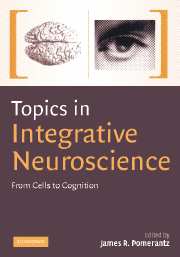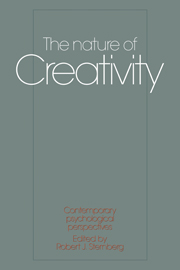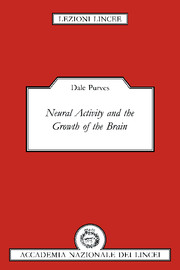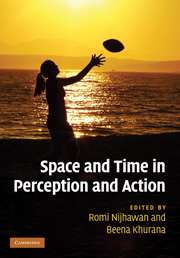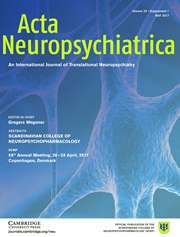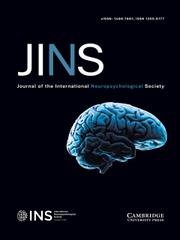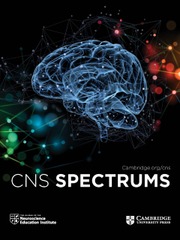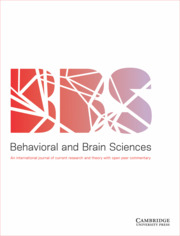Topics in Integrative Neuroscience
From Cells to Cognition
£123.00
- Editor: James R. Pomerantz, Rice University, Houston
- Date Published: February 2008
- availability: Available
- format: Hardback
- isbn: 9780521869133
£
123.00
Hardback
Other available formats:
Paperback
Looking for an inspection copy?
This title is not currently available on inspection
-
Neuroscience is progressing so rapidly that even expressions such as 'by leaps and bounds' fail to capture the pace of its growth. Questions that once were thought to be unanswerable - perhaps even unaskable - have been both asked and answered, and questions once unthinkable, are routine. Topics in Integrative Neuroscience has singled out four of the most important problems in neuroscience: higher order perception; language; memory systems; and sensory processes. The volume presents original contributions by many of the leading researchers in those fields, and with an initial chapter covering neuroethics. It is impossible to capture fully the sweep of discoveries that emerged from the 'Decade of the Brain' within the covers of a single volume. It is possible, however, to provide a sample, both in recognition of what has been accomplished and as a harbinger of what is surely to come.
Read more- Tackles the key questions underlying the neuroscience of cognition
- Chapters authored by leading researchers
- Sections are preceded by an overview outlining the contributions of each chapter and how it fits in
Reviews & endorsements
'There are very interesting, and at times complex, reviews of studies of the neural underpinnings of behaviour. The several chapters that integrate behavioural and neuroimaging studies are also a strong component of this volume.' Journal of the International Neuropsychological Society
Customer reviews
Not yet reviewed
Be the first to review
Review was not posted due to profanity
×Product details
- Date Published: February 2008
- format: Hardback
- isbn: 9780521869133
- length: 448 pages
- dimensions: 253 x 172 x 25 mm
- weight: 1.054kg
- availability: Available
Table of Contents
List of contributors
Preface
Overview of neuroscience, choice and responsibility James R. Pomerantz
1. Neuroscience, choice and responsibility Patricia S. Churchland
Part I. Higher Order Perception
Section 1. Overview of Higher Order Visual Perception Michael I. Posner:
2. Attention as an organ system Michael I. Posner and Jin Fan
3. Cortical dynamics and visual perception Charles Gilbert
4. Cortical mechanisms of visuospatial attention in humans and monkeys Sabine Kastner, Peter De Weerd, and Leslie Ungerleider
Part II. Language
Section 2. Introduction to Language Section Helen J. Neville:
5. Varying degrees of plasticity in different subsystems within language Lisa D. Sanders, Christine M. Weber-Fox and Helen J. Neville
6. The functional architecture of speech perception David Poeppel, Martin Hackl
7. Varieties of silence: the impact of neuro-degenerative diseases on language systems in the brain Karalyn Patterson, Naida L. Graham, Matthew A. Lamdon Ralph and John R. Hodges
8. Why is language unique to humans? Jacques Mehler, Marina Nespor and Marcela Peña
Part III. Memory Systems
Section 3. Introduction to Memory Section Larry R. Squire:
9. Memory systems Larry R. Squire and Craig E. L. Stark
10. A brain system for declarative memory Seth J. Ramus and Howard B. Eichenbaum
11. The role of the lateral nucleus of the amygdala in auditory fear conditioning Hugh T. Blair, Karim Nader, Gleen E. Schafe, Elizabeth P. Bauer, Sarina M. Rodrigues and Joseph E. LeDoux
12. On crucial roles of hippocampal NMDA receptors in acquisition and recall of associative memory Kazu Nakazawa, Matthew A. Wilson, and Susumu Tonegawa
Part IV. Sensory Processes
Section 4. Overview of Sensory Processes James R. Pomerantz:
13. Song selectivity, singing, and synaptic plasticity in songbirds Michele M. Solis, Neal A. Hessler, Charlotte A. Boettiger, and Allison J. Doupe
14. Voltage-dependent sodium currents in hair cells of the inner ear Julian R. A. Wooltorton, Karen M. Hurley, Hong Bao, and Ruth Anne Eatock
Index.-
General Resources
Find resources associated with this title
Type Name Unlocked * Format Size Showing of
This title is supported by one or more locked resources. Access to locked resources is granted exclusively by Cambridge University Press to lecturers whose faculty status has been verified. To gain access to locked resources, lecturers should sign in to or register for a Cambridge user account.
Please use locked resources responsibly and exercise your professional discretion when choosing how you share these materials with your students. Other lecturers may wish to use locked resources for assessment purposes and their usefulness is undermined when the source files (for example, solution manuals or test banks) are shared online or via social networks.
Supplementary resources are subject to copyright. Lecturers are permitted to view, print or download these resources for use in their teaching, but may not change them or use them for commercial gain.
If you are having problems accessing these resources please contact [email protected].
Sorry, this resource is locked
Please register or sign in to request access. If you are having problems accessing these resources please email [email protected]
Register Sign in» Proceed
You are now leaving the Cambridge University Press website. Your eBook purchase and download will be completed by our partner www.ebooks.com. Please see the permission section of the www.ebooks.com catalogue page for details of the print & copy limits on our eBooks.
Continue ×Are you sure you want to delete your account?
This cannot be undone.
Thank you for your feedback which will help us improve our service.
If you requested a response, we will make sure to get back to you shortly.
×
